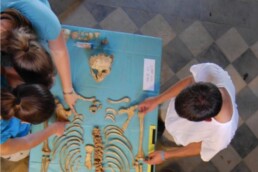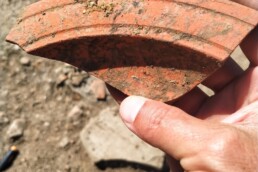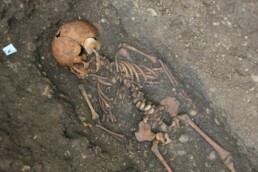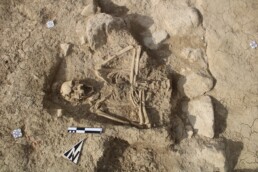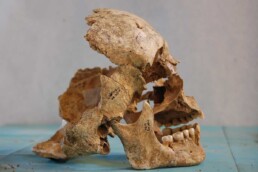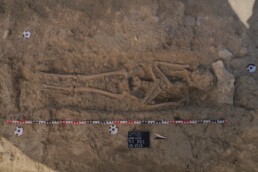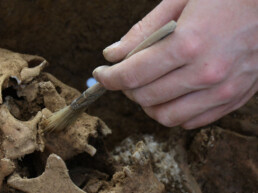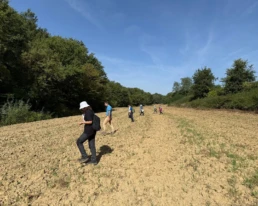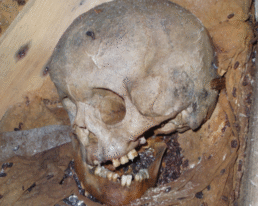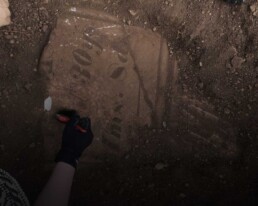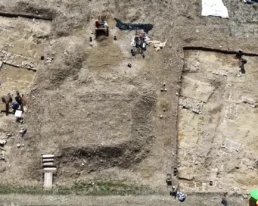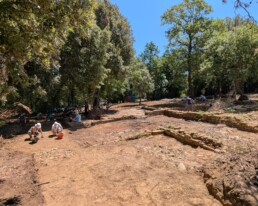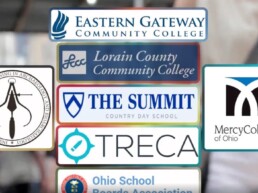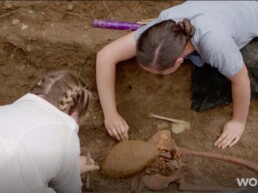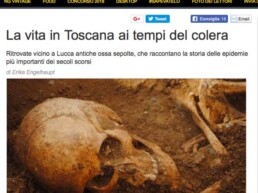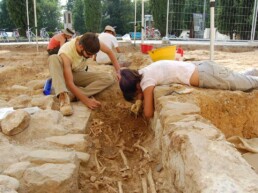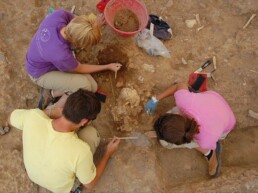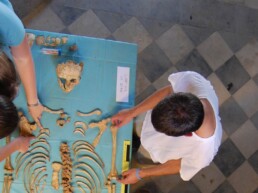IRLAB
Who we are.
The Institute for Research and Learning in Archaeology and Bioarchaeology is a non-profit organization established to promote the advancement and diffusion of archaeological and bioarchaeological knowledge through research and education.
We believe that, to understand the human condition across time and space, it is necessary to study past populations directly within their archaeological context. Indeed, only by combining archaeological survey, excavation, and laboratory analyses can we gain a holistic appreciation for the multidimensional eco-bio-cultural world experienced by humans in the past.




Enjoy our educational and academic programs in the US and abroad!
Active Projects & Courses
Our goal is that of exploring and reconstructing the human past by excavating ancient settlements and studying what our predecessors left behind, from material culture to skeletal remains. At the same time we plan to investigate the environment in which these anthropic evidences are contextualized by means of surface archaeological surveys, as well as topographic and systematic field surveys.
What we do.
One of our main objectives is to provide university students and professional researchers with multiple opportunities to receive a broad-spectrum training. To this end, we have an ongoing commitment to creating multidisciplinary, practical field schools, theoretical courses, and both introductory and advanced classes on a variety of topics within the discipline.
At the same time we continuously strive to produce concrete results, to be made known to the public through scientific and academic publications, as well as media disclosure through new means of communication. Hence, developing enduring partnerships with academic institutions and universities, as well as with governmental agencies and public associations, is one of the core principles of our Institute.
December 17, 2023
Fairmont State professor, student to participate in human remain excavation
Fairmont State University’s Kristy Henson, assistant professor of forensic science, and…
November 10, 2023
IRLAB has been selected by Wiki Ezvid among Ohio’s best educational organizations.
Fairmont State University’s Kristy Henson, assistant professor of forensic science, and…
October 25, 2023
Central Ohio Cemeteries
Archaeologists look for Irish Immigrants who died of cholera while building the Ohio…
June 24, 2023
La vita in Toscana ai tempi del colera
Ritrovate vicino a Lucca antiche ossa sepolte, che raccontano la storia delle epidemie…
March 3, 2023
Students Experience Field School in Altopascio, Italy
Boise State University, Anthropology Department Newsletter, page 6 (Boise, ID)
February 24, 2023
An Italian cemetery may provide clues on cholera’s evolution
A team of archaeologists and other researchers hope that an ancient graveyard in Italy…
February 16, 2023
Hunting for germs in an ancient graveyard
The third cholera pandemic in recorded history—and the deadliest—began in India sometime…
What you are going to learn with us.
One of our main objectives is to provide university students and professional researchers with multiple opportunities to receive a broad-spectrum training. To this end, we have an ongoing commitment to creating multidisciplinary, practical field schools, theoretical courses, and both introductory and advanced classes on a variety of topics within the discipline.
The main purpose of IRLAB is to provide students with the basis for a modern stratigraphic archaeology.
Bioarchaeology merges the excavation of human remains with the principles of anatomy.
Paleopathology is the study of disease in antiquity. This study focuses not only on pathogenic conditions, but also on nutritional disorders, variation in stature or the morphology of bones over time.
Each context provides important inputs for studies. The analysis of human history enables to deepen the scientific approach.
Archaeological and bioarchaeological sciences have embarked on a path of development that is now indelibly linked to, and dependent upon, applied modern technologies.
Material culture is the physical evidence of a culture in the objects and architecture they make, or have made.

Get an extraordinary on-field experience
Join now and take part in our educational programs for students, graduates and post graduates. All courses can issue academic ECTS credits.



Have you considered supporting our Institute’s research and educational activities?
If you believe in our mission, you can contribute to support our projects by making a tax-deductible donation. Every donation, no matter how big or small, helps us in our mission to educate future generations of researchers and to increase public awareness of archaeology and bioarchaeology.
400+
Participants to our projects
10years
Since our foundation
+2000
Credits Transcribed
100%
Satisfaction ????

